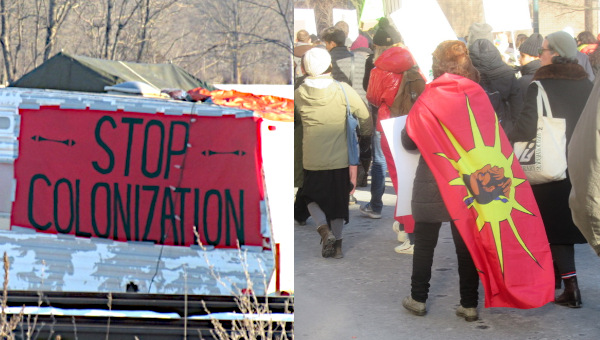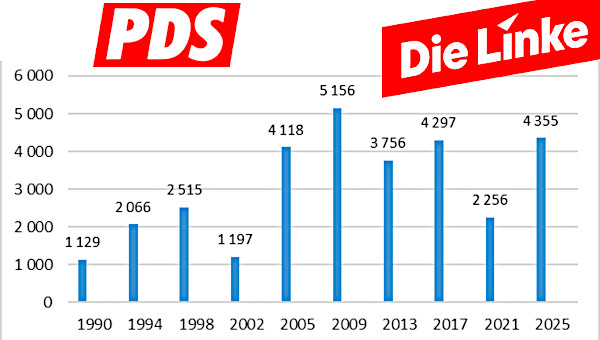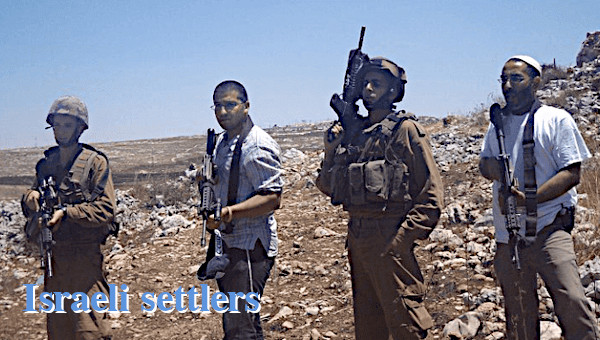From Argentina with Love, and Rage
We have been interrupted. As Clari and I regrouped after the latest violent attacks by Arauco, a multinational forestry company burning homes and arresting pregnant women in northeastern Argentina, I couldn’t help but reflect on the dismal iteration – our interview exploring Clari’s journey from a childhood interrupted by the violence of the climate crisis to a life of eco-activism, was itself interrupted by the violence of the climate crisis.
Perhaps we now live in an era when all of our lives have been irrevocably interrupted by the climate crisis, landing on some directly and enveloping others as a foggy yet inescapable presence. In that case, it’s appropriate that we can’t tell our stories of resistance without a reminder of what we’re up against – no time for romance. The window for avoidance, complacency, and even for optimism without action has shut. It’s now or never.
Clarisa Neztor is a young activist and environmental engineering student from Misiones, Argentina who needed no reminder to act now. In this interview, we discuss the anti-extractivist struggle in Misiones alongside the indigenous Mbyá Guarani people, the carbon credit scam, developing regional solidarity in Latin America, and organizing under the extreme right wing government of Javier Milei. We consider strategy and paradigm via the inseparability of human rights and the rights of nature, as well as advice on resilience and how to fight by loving.
When I asked Clari why she does it, through a fever brought on by several days of scrambling to assist the now homeless families, organizing regional support for the release of prisoners, and engaging with the press she replied, “I do it because the love I have for life is infinite.”
(This interview has been translated and edited for clarity.)
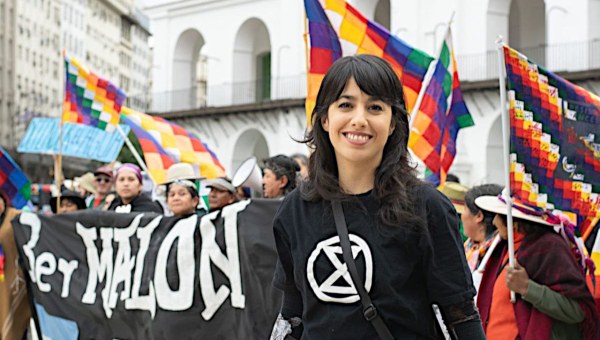
Alexandria Shaner (AS): Please introduce yourself and how you become involved in environmental justice activism.
Clarisa Neztor (CN): My name is Clarisa Neztor and I’m a socio-environmental activist from Misiones, a province in the northeast of Argentina. The Misiones Jungle is home to 52% of the country’s biodiversity and is now threatened by extinction. I study environmental engineering and accompany the struggle of the indigenous Mbyá Guarani people.
I first became aware of the climate crisis at a very young age. By the time I was 10 years old, I had seen extreme floods, forest fires and the sad reality of native fauna killed by these disasters and through ecocide committed by extractive corporations. These experiences deeply sensitized me and led me to dedicate myself to the protection of nature.
When I was 12, I was in charge of ‘Save the Planet,’ a radio program that aired from the Cristo Rey de Apóstoles School. When I left for the radio during the afternoon, my mother would joke with me ‘nobody listens to you,’ but I was happy to go anyway. Action was not optional.
The first time I read an Intergovernmental Panel on Climate Change (IPCC) report, as a teenager, was the solidifying moment that set me on a determined path to dedicate my life to the defense of nature.
Today, my mission is to ensure that future generations can enjoy a livable planet. To achieve this, we need to eliminate the extractivist production models that are destroying our ecosystems as well as immiserating and dispossessing people, especially in the Global South and among indigenous people. I work to help raise awareness and organize for collective action to bring about this change.
AS: What organizing work are you currently involved in?
CN: I am active locally with Extinction Rebellion Misiones, where we accompany the indigenous Mbyá Guarani people in their struggle against forestry corporations.
XR is a decentralized, international movement that seeks to influence governments and environmental policies through non-violent resistance, and operates with three rules: tell the truth about the ecological and climate crisis, pressure leaders to act now in proportion to the crisis, and increase democracy through binding citizen participation.
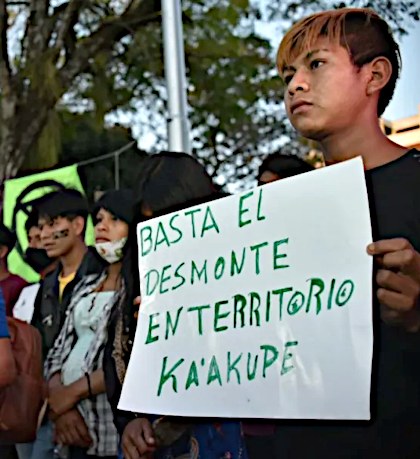
I have also been elected by all our regional chapters as XR’s regional liaison for Latin America, responsible for making the voices of the Latin American people heard and expanding our claims, weaving a network of activists around the world.
I am currently focused on publicizing the true impact of the carbon market – a greenwashing strategy of oil companies to continue polluting at the expense of ecosystems in the Global South and the blood of indigenous communities. I am engaged in popular and scientific outreach with universities as well as direct action.
AS: While we worked on this interview, we were interrupted by a violent attack followed by specious arrests of five Misiones residents on the orders of Arauco, one of the forestry companies active in the province. Please describe what happened this week and also elaborate on your work accompanying the struggle of indigenous communities in Misiones.
CN: Yes, as you said, just this week Arauco, a Chilean multinational company against which we have an ongoing struggle, burned down the houses of two local families, attacked them, and arrested five people, among them a pregnant woman. Their crime? Living in their ancestral land while capital pursues its enclosure.
XR Misiones and fellow activists from all over the country immediately began an outreach campaign calling for their release. We broadcasted interviews with the families so that this ongoing violence does not remain hidden and to exert pressure to free those who have been arrested.
This is not the first time something like this has occurred. Arauco has been invading the jungle and stealing the lands of indigenous people and peasants since 1996. All over the world but especially in the Global South, extractive companies like Arauco clear cut the forest to sell the native wood and then replace it with exotic species like pine and eucalyptus monocultures. They also drive out indigenous and local forest dwellers from their land. This practice is not only ecocidal but it displaces communities and destroys livelihoods. XR Misiones has done many local and regional campaigns to give visibility to the damages of monocultures in forestry.
Indigenous people, who have always lived in harmony with nature, are the ones who are on the front lines of suffering as extractivism advances. As I understand it, the struggle for the rights of nature and for human rights is one, it’s all a struggle for life. Together, activists and indigenous communities must defend life. We are intimately aware of the damage and know that it depends on us not to allow it to continue. We cannot rely on governments who protect corporations above life.
In 2021, local indigenous leaders asked me for help after seeing my struggle for the defense of nature. Since then, I have accompanied them, denouncing the forestry companies and doing nonviolent direct actions with XR against Arauco. This union has made me see the much more vulnerable reality of indigenous communities. When the forest is set on fire, the first to suffer are its inhabitants, the Indigenous Mbyá Guarani. They are part of the biodiversity of the Paraná rainforest.
AS: Could you share more about your work to expose the truth of the carbon credit scam?
CN: The government in Misiones has made a deal with the Swiss oil company Global Phoenix Resources to trade carbon credits through the REDD+ mechanism (reducing emissions from deforestation and degradation plus increasing carbon stocks). This deal was made under a provincial law that allows the CO2 captured by the entire Misiones rainforest (1,500,000 hectares) to be traded through carbon credits for the benefit of the oil company.
This is ridiculous and dangerous on many levels. First of all, why should the ecosystem of Misiones be enclosed and used to mitigate pollution produced by an oil company on the other side of the world? The jungle cannot and should not be commercialized. Second, this business of capitalizing on the atmosphere does not actually stop CO2 emissions, nor the increase of the temperature of the planet. The carbon credit certifiers themselves are financed by oil companies.
The REDD+ mechanism is sold as a solution to climate change but it clearly is not. It only generates guarantees for corporations to continue polluting.
The carbon market causes further harm as it often fails to recognize land rights so that rural and indigenous communities are displaced, usually violently. REDD+ has been implemented for more than 10 years in other countries with disastrous human rights consequences. In the Congo, women living in their villages were killed, in Kenya communities were burned, in Brazil they were banned from using their water, and in Peru they even militarized forests. REDD+ turns indigenous labor, child labor and rural labor into carbon credits and it is a scam.
Another specific problem in Misiones is the vast hectares of pine and eucalyptus monocultures that I previously mentioned. Yes, these trees can capture CO2 from the atmosphere but monocultures also increase soil degradation, decimate biodiversity, increase deforestation of native forests, increase pollution from agrochemical use, increase the likelihood of fires, and increase the violent dispossession of communities.
Overall, the whole process of the carbon market increases damage to local ecosystems and populations, while allowing big polluters to continue polluting with greenwashed reputations. The carbon market benefits big oil corporations and in this particular case, forestry corporations like Arauco, who distinguish themselves as “carbon neutral” for owning more than 230 thousand hectares of monoculture plantations capturing CO2. The carbon market’s true effect is to greenwash extractivism, enable and legitimize land grabs, dispossess indigenous and rural communities, and to privatize public resources like forests and air.
AS: Are there any campaigns or projects you’d like to point to and explain regarding your work developing regional and international solidarity?
CN: Atlanticazo, the defense of the Argentine sea from oil companies, has been a great national and international campaign over the past two years. It arose from the coastal assemblies of Argentina and grew with participation from different regions and countries. XR joined to collaborate and help expand it as much as possible, and we thank the entire international XR community for their cooperation.
More than ten cities mobilized during the arrival of the seismic vessel of the Norwegian company Equinor. The campaign denounced the actions of the government, the complicity of the judiciary, and exposed how the deepening of the extractive model is to obtain dollars for the IMF.
Another example of regional solidarity was seen on Earth Day in 2023. Each of the countries of Latin America where there are XR groups participated in a campaign called Tierras en Rebeldia. It was a call for the protection of nature made with love, where activists demonstrated artistically, held citizen assemblies, festivals and non-violent direct actions to proclaim that we must defend the Earth and its ecosystems that are in extinction. It was an embrace of the brotherhood of all the XR Latin American community.
AS: Many countries in the world are experiencing significant rightward shifts causing activists to face harsher conditions. Could you talk about life as an organizer under Milei’s right wing government?
CN: In Argentina, not only are we vulnerable to climate, ecological, economic and social crises, but we are now openly attacked from the highest echelons of power. Even under Argentina’s previous progressive government we experienced extractivism and criminalization of dissent. Under President Milei and the ultra-right, persecution, harassment and violence against activists has intensified, to the point of being accused of being terrorists. Milei’s government utilizes highly violent fascist rhetoric that openly promotes hatred and polarization against those of us who defend the rights of nature. This means that we have to take extreme care of ourselves and our support networks, as well as pay attention to our mental health.
We have living memory of the resistance to Argentina’s previous civil military dictatorship and there is broad recognition of the importance of fighting for human rights. However, many human rights organizations still look the other way regarding the consequences of extractivism. As socio-environmentalists, we are working to spread the understanding that the struggle for human rights and for the rights of nature are inseparable.
Of course, indigenous paradigms have a big influence because they are the ones whose rights have been and continue to be least respected. Even though agreements enshrining the rights of indigenous and tribal peoples exist, like the ILO Convention 169, governments and corporations do not respect them. Indigenous people are never consulted in the official decision making process and have been deprived of their rights for 500 years.
These days, the strategies of colonization, discrimination and theft of indigenous land have new forms and names, some of them falsely labeled sustainable like the example of the carbon market, but they are still forms of violations of human rights. Indigenous communities have taught us a lot about resistance and resilience. We constantly learn from their walk on Earth about care, love and respect for all living beings. This deep, loving interdependence is the antidote to fascism.
AS: You mentioned that your experiences with climate crises and ecocide in your youth influenced you to become a socio-environmental defender. Why do you think that you were able to translate these experiences into agency and resistance? Could you describe that process as you experienced it? Were there any other factors which contributed, like other community members, mentors, or perhaps inspiration from afar?
CN: I feel that I was able to turn my pain into action, because besides having lived through strong climatic experiences as a child, I continued to see up close how corporations and state policies destroyed nature right under our noses. It is not only heartbreaking to feel the smoke of fires for more than two months at a time, but it is unavoidable and unforgettable. Experiencing these fires made me hyper aware of the irreversible and irreparable damage that comes with burning a forest that took more than 100 years to develop, knowing that it will never be there again and that its biodiversity will never be there either. Something has to be done.
Being an activist, for me, means being a voice for nature that is crying out to be defended. It means protecting Mother Earth with all my being. I do it because the love I have for life is infinite.
Though these experiences have caused me to feel much pain, I also saw the strength in the fauna, in all of nature that does its best to resist. I saw it in and have been inspired by the indigenous people. Their fighting and protective spirit towards all life has been a guide and inspiration.
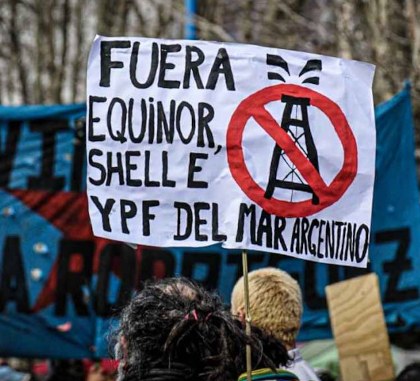
But also the love that comes from me towards each cell of life moves me. I am aware that the time to act is today and not tomorrow, that we can no longer waste a second without protecting what is left. We depend on healthy ecosystems for our very survival.
All this love has been given to me by my parents and my beloved grandfather who always taught me respect and to develop courage and wisdom. He taught me everything I know about the visible universe and my parents have transmitted to me the love for everything that exists. I am grateful for that.
AS: What advice would you give to someone reading this who has either experienced similar crises at home or is aware of them happening all over the world? What can they do?
CN: Advice is difficult because it depends on the context and experience of each person and place. But in my experience, it is always best to weave a network with people and generate community. Create alliances with local assemblies and with indigenous communities, listen to each other, feel what is happening, walk slowly but surely.
Sometimes we want to solve a thousand problems but we can’t do everything. We must develop patience, contemplate everything that happens, understand that everything takes its process, embrace the people who suffer, and do what we can in the place where we are.
When we give all our love to nature and thank her for each step we take, she listens to us and guides us. We are activists for life in extinction, we must learn to listen to nature and be one with her and our environment. Everything we do from the heart will always be the right thing to do. Never give in or give up, there is a long way to go and a lot of life to regenerate.
My heart breaks when I see what is happening in Misiones. The devastation caused by forestry companies like Arauco is irreparable for communities and nature. Every day there are more pine trees and less native forest. It is devastating to see how indigenous and peasant communities are violated and repressed in complicity with the government of Misiones. I do not understand how people continue to support a political system that always favors the corporations and not the people. It is crucial to confront the government’s complicity with corporations.
This pain drives me to act every day. My daily walk is to work for a paradigm shift that prioritizes life and nature over capital.
We are going through and enduring with our bodies the collapse of all ecosystems. We know that we depend on ecosystems being healthy for our survival, and yet must remember that part of healthy ecology is also dependent on being more united as we protect all that we love to move forward and ensure a livable future.
My advice? Do not leave me alone. We need all of us awake, united, and moving more than ever. There is no other time to act. With love and rage. •
This article first published on the ZNetwork website.


